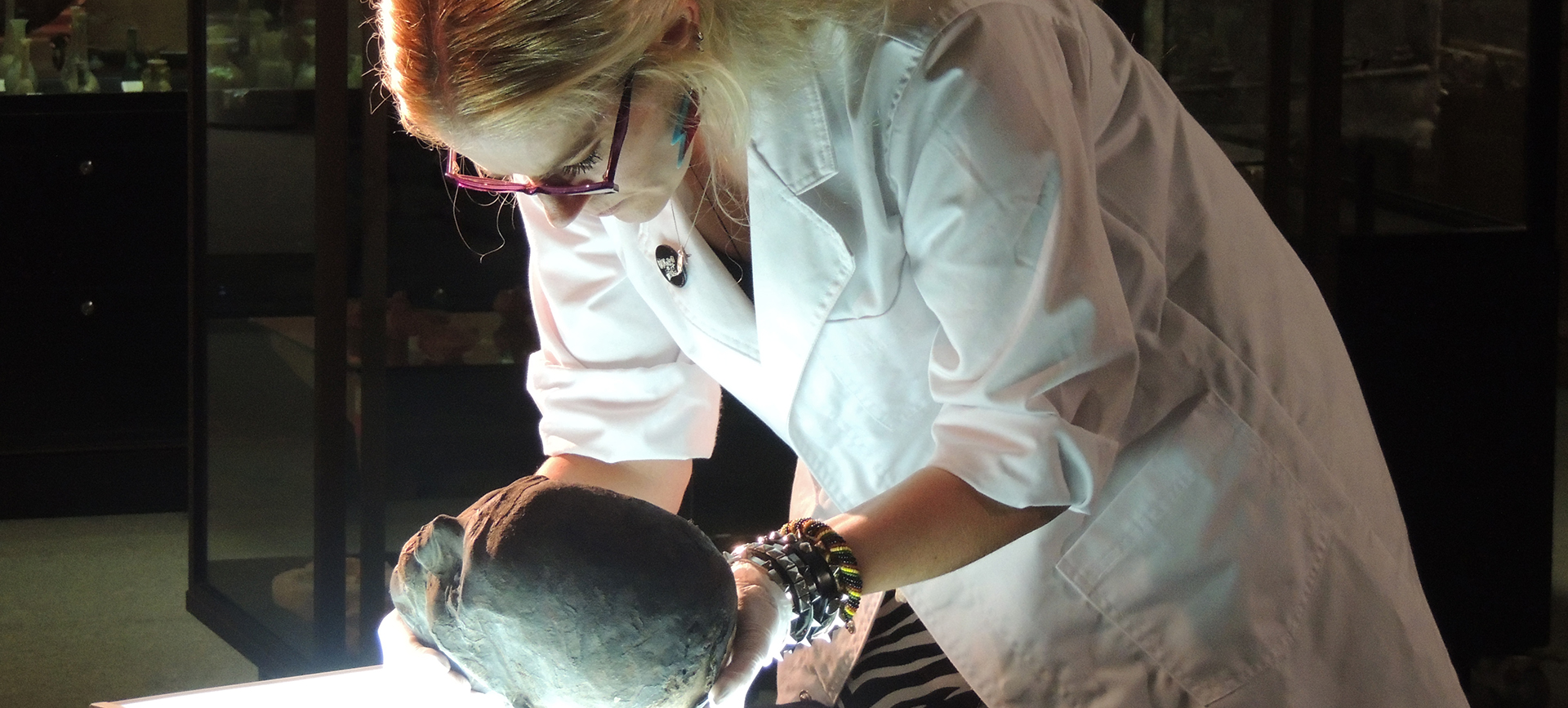Dr Ronika Power examining a mummified human head from the Australian Museum’s Egyptian Collection in the Museum of Ancient Cultures at Macquarie University. Image courtesy of Dr Yann Tristant from the MQ Mummies Project.
Congratulations to Dr Ronika Power, bioarchaeologist from the Department of Ancient History in the Faculty of Arts, who was recently named as one of the first Superstars of STEM – ready to smash stereotypes and forge a new generation of role models for young women and girls.
More than 300 applicants vied for a spot to be a Superstar, with the successful candidates to receive training and development to use social media, TV, radio and public speaking opportunities to carve out a more diverse face for science, technology, engineering and mathematics (STEM).
Announced in early July by the Minister for Industry, Innovation and Science, Senator the Hon Arthur Sinodinos AO, the women will learn how to speak about their science and inspire others to consider a career in STEM.
“I am thrilled and deeply honoured to have been selected as one of the 30 inaugural STEM Superstars for Science & Technology Australia. I see this as a powerful opportunity to celebrate and promote the work of the countless women who are achieving extraordinary things in STEM, and to encourage and inspire the next generation of young women and girls to study and work across STEM fields,” said Dr Power.
“I’m also particularly delighted to be showing Australia the great diversity in which STEM can be applied in teaching, research and employment. As a bioarchaeologist, it is my goal to try and integrate the arts and sciences wherever possible, and demonstrate the real magic that can happen when we work together,” she added.
Professor Martina Möllering, Executive Dean of the Faculty of Arts, added her congratulations, acknowledging Dr Power’s dedication and passion.
“To have Dr Ronika Power, a member of our community of scholars in the Faculty of Arts, nominated as inaugural Superstar of STEM for Science and Technology Australia is a great honour and it speaks to the increasing collaboration across boundaries between the humanities and the sciences,” she said.
“As a researcher in biocultural archaeology, Ronika’s research combines scientific analysis of the human body with other forms of historical and archaeological evidence to gain insights into the life of past populations, thus helping us to expand our understanding of the human condition across time.”
Learn more about Dr Power and her work in bioarchaeology at Macquarie.


 Back to homepage
Back to homepage